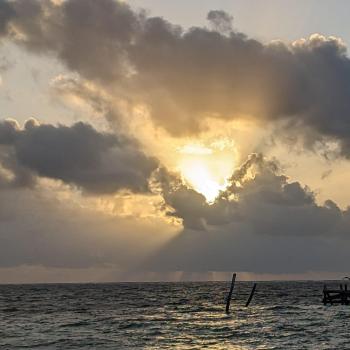Read Mark’s weekly reflections on The Huffington Post.
There are teachers everywhere. Every culture and tradition on Earth has quiet teachers and customs that are time-tried and still relevant. This teaching comes from Brazil.
E Dai
When in Brazil, my friend David encountered the phrase E daí (ay-die-ee), which is Portuguese for “And then?” Regardless of the story told or hardship conveyed, the custom is for the listener to ask after a while, “E daí?” with a tone that implies,“And so? What now?” Literally e is and and daí means from there, from a place near you, as in “What is just beyond where you are?” or “And so, what is your next step?”
The phrase E daí invokes three successive meanings, often asked by the one who will hear you out:First, I hear what life has given you. E daí? And so, what does this matter? What does this mean? Second, I see where you are. E daí? And so, from there, what is in front of you? What is just beyond where you are? And third, E daí? And so, what now? What is your next step?
In a deeply practical way, this custom invites us to locate ourselves in any given situation from the inside out and from the largest frame of reference possible to the immediate circumstance. Before we overreact or react prematurely to whatever situation we find ourselves in, it helps to ask, E daí? What does this mean in the journey of one life in its time on Earth within the larger journey of all life across all time? Such consideration will affect whether we respond at all or in what way. After locating the event in the largest frame, it helps to look at the particular situation and determine, E daí? What is in front of us? Will the ground before us bear our weight? Should we back up? Should we sidestep the situation? Or should we stand firmly where we are? Both the larger and more particular context help us to ask and know, E daí? What is our next step?
In most cases, urgency is not an issue. In most instances, we have time to engage this situational inventory, which practiced enough becomes automatic like breathing. And in those few cases where we need to act quickly, we are challenged to trust our intuition, dared to enter the moment without hesitation. From inside such moments, time often slows down and opens up, becoming timeless. This is what people report after moving through physical crises, that the event seemed to unfold in slow motion.
For each of us, these next steps are acts of love that require courage and compassion. They are profound gestures that change both the giver and receiver. They can change the landscape of a life.
—excerpt from Seven Thousand Ways to Listen,
just published from Simon & Schuster, October 9, 2012
A Question to Walk With: Describe a situation you are facing. Ask yourself the question—E daí—in its three meanings, and bring what you learn to a friend.












